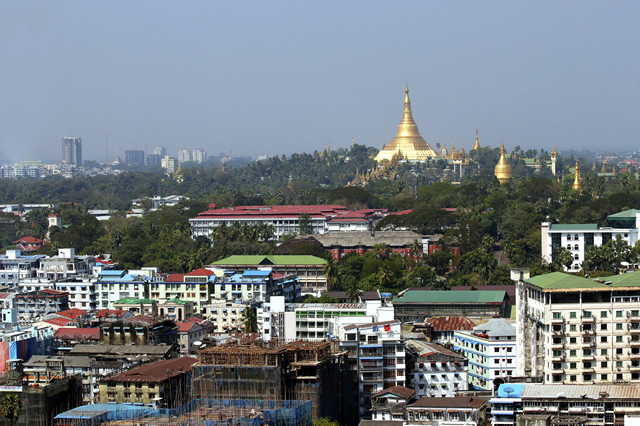Myanmar and CSR: Creating and Implementing Successful Strategy

Vicky Bowman has co-authored a blog with Inle Advisory Group on what CSR means in and for Myanmar. Foreign businesses are expected to be a major player in the development of the country. We offer the following recommendations to assist in thinking through
Vicky Bowman has co-authored a blog with Inle Advisory Group on what CSR means in and for Myanmar.
Investors seeking to enter Myanmar are being encouraged to incorporate corporate social responsibility (CSR) into their business model. The push comes not just from Western governments and local and international NGOs, but from the Myanmar government itself. President Thein Sein has said that his government ‘is taking steps to build investor confidence and promote responsible investment in Myanmar’. The government has come to this realization due to an increasingly vocal civil society and growing widespread public opposition to controversial and non-transparent investments that were the hallmark of the previous regime, such as the Myitsone dam and the Letpadaung copper mine. It is seeking to address those concerns and strike a new tone for foreign investment in the country.
Defining CSR
There is no single view of what ‘CSR’ is, although increasingly it is understood to involve respect for human rights and the environment. The EU definition – ‘the responsibility of business for its impacts on society’ – recognizes that CSR is about more than philanthropy; to fully meet their social responsibility, enterprises “should have in place a process to integrate social, environmental, ethical human rights and consumer concerns into their business operations and core strategy in close collaboration with their stakeholders” and actively comply with laws, ethical standards, and international norms. The basic responsibility of business, as established in the 2011 UN Guiding Principles on Business and Human Rights, is to respect human rights.
Myanmar Seeks to Implement CSR
The government is looking to demonstrate to Western investors, as well as new foreign investors from the region, that the investment climate is changing. The Myanmar Investment Commission (MIC) now asks for information about CSR, and in some sectors makes an environmental and social impact assessment (ESIA) a prerequisite for obtaining MIC approval. The recent renegotiation of the Letpadaung copper mine investment resulted in the inclusion of a legally binding clause of 2% of net profits going towards CSR with a focus on immediate communities. Some government advisers comment this should become standard practice for mining, and we would not be surprised if this requirement were extended to oil and gas companies.
The government has also embraced international standards and initiatives such as the UN Global Compact and the Extractives Industries Transparency Initiative (EITI). In early March, the OECD and the government will launch the OECD Investment Policy Review, and hold meetings to promote responsible business conduct and awareness of the OECD Guidelines for Multinational Enterprises.
Unclear Regulatory Environment Clouds CSR Strategy
Both government and civil society, as well as those companies keen to invest responsibly in Myanmar, are hobbled by the absence of modern environmental and social protection laws and a shifting regulatory landscape. There have been some welcome reforms on social protection, employment and freedom of association for workers, although they remain incomplete. A minimum wage rate has not yet been set and trade unions are still struggling to gain acceptance with employers. The 2012 Environmental Conservation Law envisages prescribing environmental quality standards (EQS) including standards on emissions, effluents, solid wastes, production procedures, processes and products for conservation and enhancement of environmental quality. However, no EQS have yet been adopted. There is no recognition of ‘Indigenous Peoples’ (IP) in Myanmar, which challenges companies and donors with a commitment to seeking to achieve Free Prior and Informed Consent (FPIC) in certain circumstances where IP rights are impacted. Nor is it clear how the aforementioned 2% CSR allocation might evolve across sectors.
Developing a CSR Strategy
Foreign businesses are expected to be a major player in the development of the country. There is a real opportunity for investors to bring in international standards and set a model of good corporate behavior that not only builds wealth and creates jobs, but acts as a steward for protecting the surrounding environment and human resources. Such an approach can take many forms, beyond the baseline ‘responsibility to respect’: training and education, community based projects such as providing clean water or improved roads, provision of medical supplies, assistance to support the growth of a local supply chain, or income generation opportunities for excluded groups.
We offer the following recommendations to assist in thinking through your approach:
-
Consult stakeholders. Engaging with relevant government officials, political leaders, and civil society is important, but ensure outreach goes beyond Yangon and Nay Pyi Taw and embraces groups often excluded, including women, children, disabled, and minority populations. Very few communities in Myanmar have been consulted, either about investment or a company’s CSR approach. Too often, impacted communities find out about major investment projects after a contract has been signed and the bulldozers move in. Ethnic areas are home to a wealth of natural resources and development opportunities but economic development has the potential either to fuel conflict or build peace. With complicated local dynamics and multiple actors, stakeholder engagement in conflict and post-conflict areas needs to be particularly careful and thorough. Listening to communities’ desires and concerns, explaining the scope of intended investment, and discussing how it could impact the community can go a long way to positively enhance engagement and prevent future problems.
Additionally, contact with international NGOs and donor agencies is beneficial. Donor-funded human resources development programs will be necessary to build a competitive economy. The country is flooded with offers of assistance, much of it poorly coordinated and competing, and these should not be developed in a vacuum separate to business investment in the country. -
Understand the local and national context. Myanmar struggles with the same issues that every least developed country does: corruption, inadequate infrastructure, under-resourced public services, and a poor skills and education base. Some CSR approaches which have worked well elsewhere will translate, others may not, so avoid the cookie-cutter. You will also need to understand the complexity of recent history, and the impacts of decades of ethnic conflict, human rights abuses, religious diversity, and military rule. Changes to the regulatory and business environment are confusing and opaque, notifications last minute, and not available in English; the changes to state structure and regional autonomy are likely to increase over the coming years as a result of peace agreements and constitutional change, making the environment more complex.
-
Ensure your CSR approach fits both your business and their real needs. Creating a program designed to fit a community’s needs in which they have a say is important. Setting boundaries is equally important; programs should not supplant the government’s lack of service provision. Communities will expect you to build schools and clinics. But the checkbook approach is not sustainable, and if you are not careful, they and the government will then expect you to pay for the teachers and doctors too. In the end you may be distracted from addressing the issues that matter more fundamentally to your business and the community, such as livelihoods and jobs, cultural heritage, and their environment.
-
Be transparent. Transparency has shallow roots in the new Myanmar, but there is now rich soil in the wealth of new social media, traditional print journals, TV and radio channels, and the internet. Communication barriers between business and civil society have existed for decades; work with the media to communicate the facts about your business, your adherence to international standards, particularly on anti-corruption and sound labor practices, and how you are looking for these in your local suppliers and partners. Ensure consultation processes and published information are accessible, transparent, and publicly documented.
Pursuing a CSR program should be viewed as an opportunity, not a burden. It should be seen as an investment in goodwill critical in an environment with little in the way of rule of law, capacity, and an increasingly vocal civil society and political active communities willing to publicly—and rightly—highlight substandard investment practices. Well-designed CSR programs which go beyond respect and promote enjoyment of human rights, in particular through ensuring that the economic benefits of the investment are felt locally, will bolster a company’s social license and contribute to Myanmar’s development.
Vicky Bowman has been Director of the Myanmar Centre for Responsible Business since July 2013. She was previously a career diplomat, serving in Myanmar from 1990-1993, and as UK Ambassador from 2002-2006. She has also worked for global mining company Rio Tinto, and served in the European Commission.
The Myanmar Centre for Responsible Business is a multi-donor-funded initiative intended to provide an effective and legitimate platform for the creation of knowledge, capacity and dialogue concerning responsible business in the country, based on local needs and international standards, working with government, business and civil society stakeholders. In 2014 it will publish sector-wide impact assessments on the oil and gas, and tourism sectors in Myanmar.
Share:

 English
English မြန်မာ
မြန်မာ မြန်မာ (unicode)
မြန်မာ (unicode)









